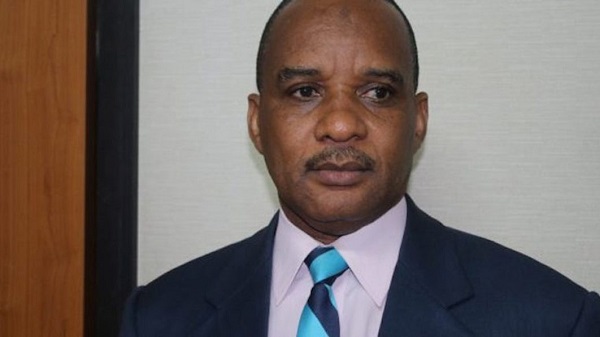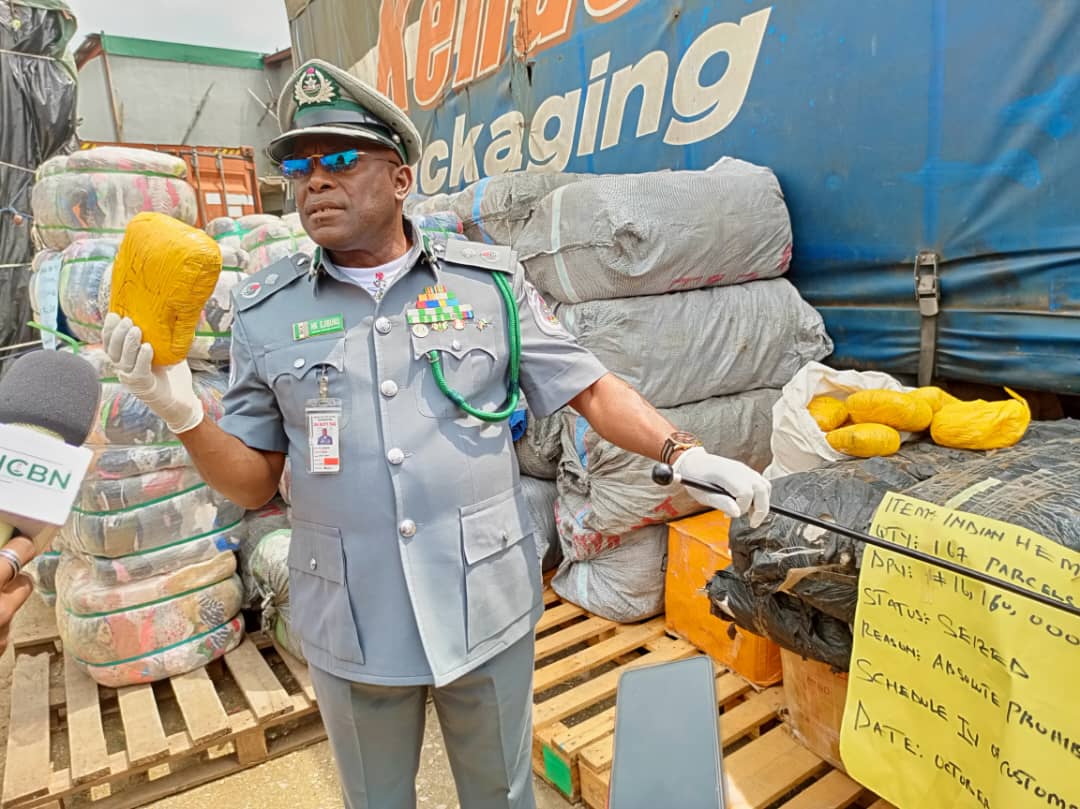NEWS LENS
CIF, FOB Are Market Forces Determinants—Johnson Chukwu
· Freight Forwarders kick against palletization policy
· How FG Mismanaged N180bn Chinese Loan
By Kenneth Jukpor & Nkem Osuagwu
Maritime industry experts and ship-owners, over the years, have driven on the wrong impression calling for a change in the Nigerian trade policy of selling crude oil from Free On Board (FOB) to Cost, Insurance and Freight (CIF), whereas market forces are the real determinants of the trade terms.
Cost, Insurance and Freight (CIF) and Free on Board (FOB) are international shipping agreements used in the transportation of goods between a buyer and a seller. The specific definitions are different for every country, but CIF and FOB have similar uses. They differ in who assumes responsibility for the goods during transit.
Both contracts specify origin and destination information that is used to determine where liability officially begins and ends. In CIF agreements, insurance and other costs are assumed by the seller, with liability and costs associated with successful transit paid by the seller up until the goods are received by the buyer. Goods are not considered to be delivered until they are in the buyer’s possession.
Most Nigerian ship-owners have argued that it is unacceptable for the nation’s crude to continue to be lifted on Freight on Board (FOB) basis, a system that allows the foreign buyers to “dictate the carriage and insurance” and this had formed the major discourse in several editions of NIMAREX (Nigerian Maritime Expo), an event organized by indigenous ship-owners to discuss the problems and prospects of maritime in the nation.
However, MMS Plus investigations have revealed that most Nigerian exporters in oil and other non-oil commodities have become flexible to accommodate the needs of the foreign buyers; while some foreign buyers prefer CIF, others opted to buy on FOB basis.
There are also new procedures such as TTO (Tanker Take Over) whereby the seller gives the buyer his vessel of oil to go with and returns the vessel later and TTT (Tanker to Tanker Transfer), here the buyer brings his vessel and the product is transferred from the vessel of the seller to that of the buyer usually at a location agreed by both parties.
During an exclusive interview with MMS Plus last week, an economic expert and Managing Director of Cowry Assets Management, Mr. Johnson Chukwu stressed that FOB and CIF are subject to market forces in current global trade.
“FOB and CIF are purely subject to market forces today. The buyer and seller have the privilege to choose what suits them. Government policies don’t force the buyer so the market forces determine these things” Chukwu said.
He also dispelled fears that the introduction of palletization policy by the Nigeria Customs Service would lead to depletion in the nation’s foreign reserve as posited by some freight forwarders.
“The palletization policy is only a system for the Customs to easily carryout examination of cargoes. It doesn’t in any way affect the nation’s foreign reserve” Chukwu added.
The President of the National Association of Government Approved Freight Forwarders (NAGAFF) Chief Increase Uche had lamented in a recent stakeholders’ breakfast meeting that the introduction of palletization would deplete the nation’s foreign reserve by about 50 per cent within six months.
Chief Increase didn’t illustrate how palletization could deplete the nation’s foreign exchange reserve but he argued further that the nation wasn’t ready for the introduction of such policy.
He said; “There are certain issues that should have been taken care of before we talk about the palletization policy. Yes, it would be more convenient to scan containers when we use pallets but the scanners are not working. When you get to the examination bays, the security agents would ask the freight forwarder to remove the pallets to enable them do physical examination. Officers can’t force themselves into the container where there are pallets but scanners can do that. Is the government providing forklifts that can easily pull out the pallets from the containers? The answer is no.”
“The volume of containers at the ports would increase by three or four times but the challenge is that the freight payments would also increase. Instead of paying N6,000 for a particular volume of cargo, for instance, you would have to pay N18,000 to N24,000 as the same volume of cargo would have to be carried in three or four containers. Within six (6) months this would deplete the nation’s foreign reserve by about 50 per cent”, he said.
Foreign exchange reserves are the foreign currencies held by a country’s central bank. They are also called foreign currency reserves or foreign reserves. Exporters from a country deposit foreign currency into their local banks which is later transferred to the central bank. Central banks use foreign exchange reserves to keep the value of the nation’s currency at a fixed rate. This reserve is also used to maintain liquidity in case of an economic crisis or cases of war. Reserves are also needed to make sure a country meets its external obligations.
How FG Mismanaged N180bn Chinese Loan
Meanwhile, the Association of Nigeria Aviation Professionals (ANAP) has alleged that the recent $500 million loan, equivalent to N180billion, secured from the Chinese government for the construction of new terminals in the country were mismanaged by government.
Speaking with journalists at the Lagos Airport at the weekend, Comrade Abdulrazak Saidu, the General Secretary of ANAP insisted that the fund in which Nigeria had a counterpart funding of $100 million was grossly mismanaged by those in government because the projects for which it was meant for has yet to be actualized.
He recalled that the fund was secured for the construction of new terminals at Lagos, Abuja, Kano and Port Harcourt Airports in 2013 with completion date of 24 months, but wondered why none of the airports had a completed terminal up till now after 48 months.
Saidu observed that the original masterplans for Lagos and Abuja Airports were distorted by the construction of the new terminals, stressing that such distortion indicated lack of adequate planning by the government.
He said: “For example, the remodelling of Murtala Mohammed International Airport (MMIA) and the loan they took from China was mismanaged. The original master plan of MMIA and Nnamdi Azikwe Airport, Abuja were badly depleted.
“The depletion has seriously affected the control towers of both airports. What justification or right do they have? They ought to have followed the original master plan of both airports before the construction of any new terminals.”
He also lamented that most of the sensitive areas of the airports had been given out to individuals on political basis, stressing that this may one day affect security at the airport.
Saidu maintained that with the handing over of sensitive areas of the airports to individuals, security of the airports may be compromised one day, stressing that security at the nation’s airports is complicated.
Copyright MMS Plus.
All rights reserved. This material, and other digital content on this website, may not be reproduced, published, broadcast, rewritten or redistributed in whole or in part without prior express written permission from KINGS COMMUNICATIONS LIMITED.







